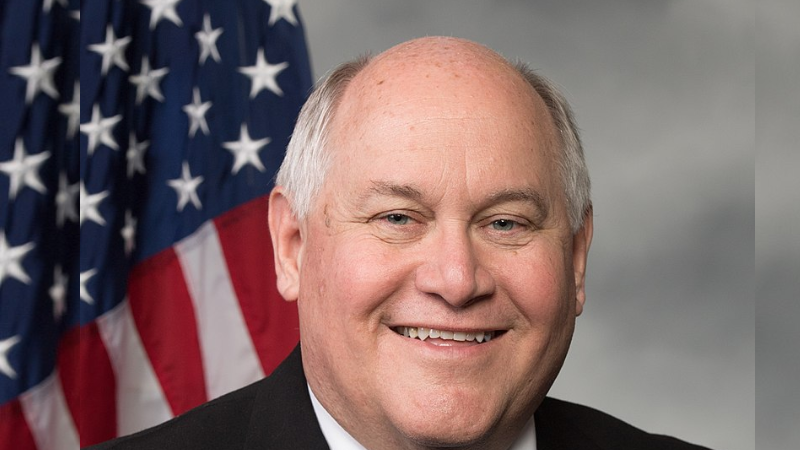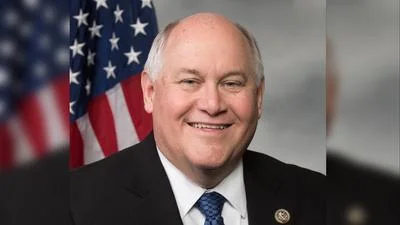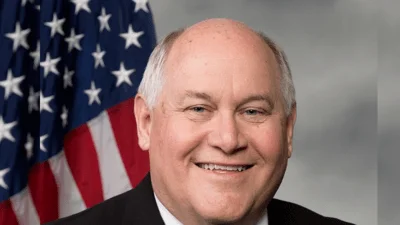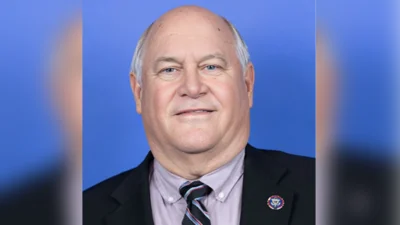Congressman Ron Estes (R-Kansas) | Congressman Ron Estes Official Website (https://estes.house.gov)
Congressman Ron Estes (R-Kansas) | Congressman Ron Estes Official Website (https://estes.house.gov)
WASHINGTON – On April 18, 2023 on Tax Day, Reps. Ron Estes (R-Kansas) and John Larson (D-Connecticut) are reintroducing their American Innovation and R&D Competitiveness Act. They are joined by Reps. Darin LaHood (R-Illinois), Suzan DelBene (D-Washington), Jodey Arrington (R-Texas), Jimmy Panetta (D-California) and 56 additional original cosponsors. The bill permanently allows for immediate research and development expensing looking back to 2022 when the provision expired and has received broad bipartisan support.
"Research and development is critical for our American economy, and it's imperative that we give American innovators the tools and incentives to conduct that R&D right here in the United States," said Rep. Estes. "More R&D here at home means more jobs now and in the future. Rep. Larson and I know that businesses and manufacturers in our districts and across the country need immediate R&D expensing, and we're joined by a number of our colleagues on both sides of the aisle that want to see this bill passed. With the 2023 Tax Day upon us, the time for waiting on immediate R&D expensing is over – Congress should pass the American Innovation and R&D Competitiveness Act now."
"Research and development play an integral role in creating good-paying jobs across the country, especially as we rebuild our economy from the impacts of the pandemic. If we do not act to fix the R&D tax deduction, there will be serious repercussions on jobs and our economy. Rep. Estes and I joined together on this legislation to ensure the R&D tax deduction does what it was designed to do: support American businesses and workers as they develop technologies of the future," said Rep. Larson.
"The American Innovation and R&D Competitiveness Act offers a much-needed boost for the equipment manufacturing industry at a time when America faces adverse inflation and strained supply chains. By restoring strong incentives for research and development expenditures, this legislation will encourage more equipment manufacturers to develop the best and most advanced products in the United States, driving domestic innovation and growth across the industry," said Kip Eideberg, senior vice president of government and industry relations for the Association of Equipment Manufacturers (AEM). "AEM applauds Representatives Ron Estes and John Larson for introducing the bipartisan American Innovation and R&D Competitiveness Act and urges Congress to pass it as soon as possible."
"This R&D incentive is a powerful tax tool for us to not only invest in the short-term, but to sustain our investment toward long-term research and development for even greater impact to the economy, our people, and our customers," said Nathan Ebert, Vice President and General Manager, BG Automation in Derby, Kansas. "R&D has been both a growth generator and growth accelerator for BG Products, Inc. and BG Automation, LLC. We at BG truly appreciate the bipartisan work across our legislature in granting and hopefully permanently extending this opportunity for American businesses of all sizes."
"Businesses large and small are significantly affected by this new amortization requirement. Wright-Pierce is an employee-owned water, wastewater and civil infrastructure consulting engineering firm of 325 employees with 30 staff located in Middletown, Connecticut," said Paul Birkel, President and CEO of Wright-Pierce. "At a time when our country needs engineers more than ever to support the reinvestment in our vital public infrastructure, the expense amortization requirement in Section 174 unduly and unfairly triples our tax obligation and threatens the very existence of many firms such as ours. Repeal of this requirement retroactive to tax year 2022 is essential to achieve the goals of the Infrastructure Investment and Jobs Act and to prevent the disruption of critical municipal and governmental engineering services needed to support the economic prosperity of our country."
"As with all U.S. manufacturers, Tyson Foods must be able to invest, grow, and maintain its edge over foreign competitors. As it stands today, U.S. manufacturers like Tyson Foods, who drive more innovation than any other sector, face a harmful R&D tax change that if not reversed will hurt jobs, innovation and competitiveness," said Tyson Foods. "The U.S. is currently one of only two developed countries requiring the amortization of R&D expenses. Additionally, China currently has one of the most generous R&D incentive regimes with its so‐called “super‐deduction” providing a 200% deduction for its manufacturers’ research. What China offers to its manufacturers means $100 of qualifying R&D expenses would generate a $200 deduction in 2022 whereas the same $100 expense in the U.S. would generate a mere $10 deduction as U.S. rules reduce the first‐year deduction in half. This R&D tax change is not bolstering global competitiveness for U.S. manufacturers. For these reasons, Tyson Foods urges Congress to support the bi-partisan House and Senate bills with the efforts of reversing the harmful R&D tax change that poses a serious threat to jobs and innovation in America."
Immediate R&D expensing incentivizes long-term investments in innovation and technological breakthroughs by allowing a business to deduct research and development activities in the tax year that they occur. The American Innovation and R&D Competitiveness Act will ensure that the United States continues to be the world leader in innovation by repealing a section of the Tax Cuts and Jobs Act (TCJA) that required the amortization of R&D expensing over five years beginning in 2022.
In 2020, the Tax Foundation said immediate expensing of all investments, including R&D expensing, is the number one federal reform Congress can take to encourage economic recovery after COVID-19.
An earlier version of this bill was featured as one of the National Taxpayers Union's Bipartisan "No Brainers" in 2020, a collection of 10 bills that NTU deems as "no-brainer" bills that have bipartisan support and should be easily passed by Congress. While NTU doesn't allow repeats on their annual list, they did include it as an honorable mention in their 2021 list. The NTU also sent a letter to members of the House Ways and Means Committee urging the support of common sense policies within the committee's jurisdiction, saying, "Among our top tax policy priorities for 2023 are: Permanently allowing businesses to fully and immediately expense their research and development (R&D) expenditures, reversing a switch to five-year amortization that took effect on January 1, 2022; 22 other taxpayer, free-market, and consumer advocacy organizations support this broadly bipartisan initiative led by Reps. Ron Estes (R-KS) and John Larson (D-CT)."
In addition to Reps. Estes, Larson, LaHood, DelBene, Arrington, and Panetta, 28 Democrats and 28 Republicans are original cosponsors of the American Innovation and R&D Competitiveness Act: Reps. Vern Buchanan, Earl Blumenauer, Adrian Smith, Bill Pascrell, Mike Kelly, Danny K. Davis, David Schweikert, Terri Sewell, Brad Wenstrup, Dan Kildee, Drew Ferguson, Don Beyer, Lloyd Smucker, Dwight Evans, Kevin Hern, Suzanne Bonamici, Carol Miller, Greg Stanton, David Kustoff, Sharice Davids, Brian Fitzpatrick, Marc Veasey, Blake Moore, Joe Neguse, Beth Van Duyne, Elissa Slotkin, Randy Feenstra, Jennifer Wexton, Mike Carey, Henry Cuellar, Andy Barr, Josh Gottheimer, Don Bacon, Julia Brownley, Bill Huizenga, Joe Morelle, Bill Johnson, Joe Courtney, Earl L. "Buddy" Carter, Gerry Connolly, Debbie Lesko, David Trone, Guy Reschenthaler, Deborah Ross, Diana Harshbarger, Seth Moulton, Ken Calvert, Ro Khanna, Rick Crawford, Hillary Scholten, Warren Davidson, Dina Titus, Tracey Mann, Haley Stevens, John Moolenaar, Marcy Kaptur, John Joyce, Mikie Sherrill, Mike Bost, Lisa Blunt Rochester.
Original source can be found here.





 Alerts Sign-up
Alerts Sign-up